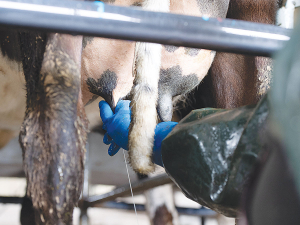Farmers are being urged to work with their veterinarian to keep animals healthy and help prevent drug-resistant infections developing.
Owners are being urged to vaccinate their animals against preventable diseases and keep these up-to-date; isolate sick and potentially infectious animals away from healthy ones; and provide a well-balanced diet and continued access to shade and shelter, to help stop animals becoming unwell.
The calls come as the veterinary profession marked World AMR Awareness Week this month, a global campaign to address the issue of antimicrobial resistance (AMR) that threatens human and animal health. AMR is one of the top 10 global public health threats and occurs when bacteria, viruses and parasites no longer respond to medicine, making them difficult or impossible to treat.
The World Health Organisation lists AMR as a top 10 global health threat to people, animals and the environment.
New Zealand Veterinary Association (NZVA) head of veterinary services - companion animal Sally Cory says for farmers, having an effective and comprehensive vaccination programme is key to preventing illness, as many diseases can be effectively vaccinated against.
Owners should also let their veterinarian know if their animal isn’t responding to antibiotics, as they may need more investigations and a different approach.
“This doesn’t necessarily mean they need another antibiotic or a bigger dose, but a different course of action might be needed,” Cory says.
Total antibiotic use in all New Zealand animals has fallen in recent years. These efforts are contributing to the NZVA’s aspirational goal that by 2030, New Zealand will not need antibiotics for the maintenance of animal health and wellness.
According to the World Health Organisation, within the next 30 years, resistance to antibiotics and other antimicrobial products is anticipated to kill more people around the world than cancer.
The Veterinary Council of New Zealand (VCNZ), which regulates veterinarians and sets standards to support responsible antimicrobial use among veterinarians, is about to begin developing a new strategy to minimise the risk of AMR in animals in Aotearoa.
VCNZ chief executive and registrar Iain McLachlan says the strategy will complement initiatives in other parts of the sector, including the New Zealand Veterinary Association and Ministry for Primary Industries.
“Veterinarians, as stewards of antimicrobial products and the sole authoriser of their use in animals, have a critical role to play in managing the risks of AMR,” Iain says. “We’re looking forward to getting this work underway and will be consulting right across the sector to ensure a wide range of perspectives are captured.”


















